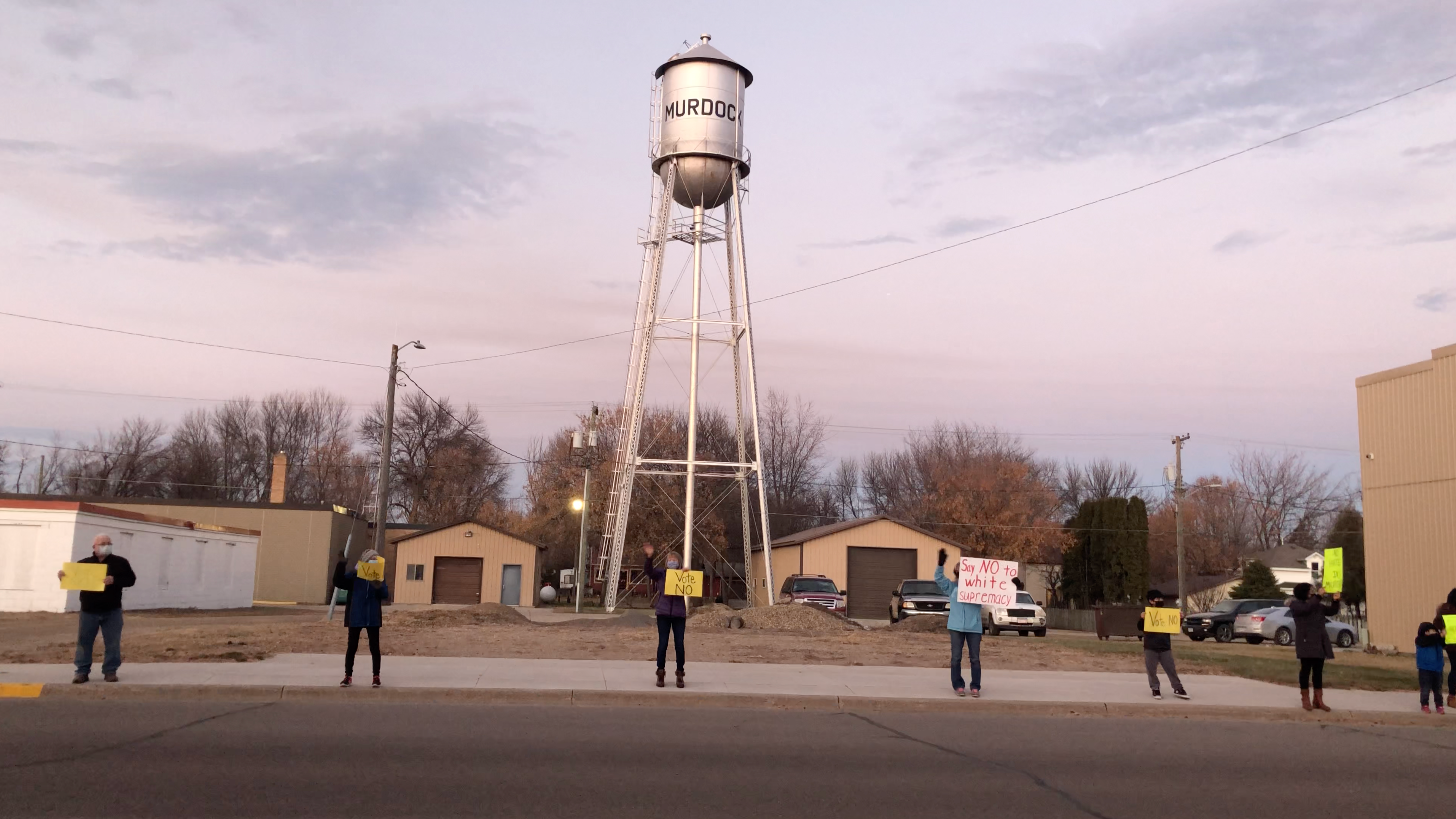At 5:30 PM, when the city council meeting was set to start, the rally moved from the highway to city hall. There were call and response chants in English and Spanish.
One young woman, Madeline, was leading the Spanish chants. "We are here because we want no hate, we want peace. We've been here Murdock and Kerkhoven, and we always been here peacefully and we want no hate."
The mayor of Murdock, Craig Kavanaugh, posted a statement on the city's Facebook page saying, "As the council meeting started Wednesday, December 9, you could tell tensions were high, as people line the streets and were shouting at members of the council, as they walked in the door of city hall." Now the people were shouting "vote no," but they were also shouting their support of the people on the city council, repeating "we support you!" They recognized that it's the AFA that's put this decision onto the council and the spotlight on the small town.
Because of COVID-19, the public was not allowed to attend the city council meeting. The council did make the meeting available to the public via Zoom, but many people had trouble accessing the meeting and those who could access the call, found it to be inaudible.
In the mayor's statement, he apologized for the myriad issues with the Zoom call, but there were questions about whether or not the meeting violated Minnesota's open meeting laws. In the same statement, the mayor said that, "We as the leaders of the city of Murdock want it to be known that the city of Murdock condemns racism in all of its forms, conscious, unconscious, any place any time, now and in the future. We are committed to building a community that promotes equal justice and opportunity to every single person regardless of their race." It continued, "The vote last night had nothing to do with beliefs or race. It was strictly a zoning issue, the council felt like it needed to legally abide by, or it would have caused a substantial burden to the town."



